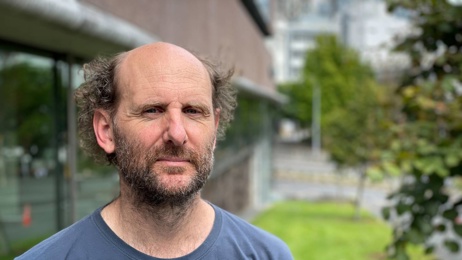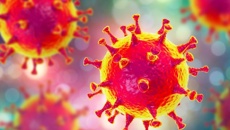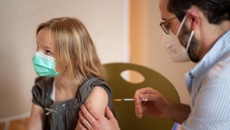
A legal expert has described New Zealand's MIQ system as "very close to being broken" and believes the Government is well aware they are in "big trouble".
His call comes after richlister Murray Bolton won a landmark test case against the MIQ system that will allow him to travel to the US and self-isolate at home on his return.
Bolton, 73, is the director of US-based company Xplor Technologies.
The firm is about to list on the New York Stock Exchange and Bolton needs to attend a crucial two-day board meeting in Boston on November 11 and 12 to promote New Zealand's economic interests.
/cloudfront-ap-southeast-2.images.arcpublishing.com/nzme/JQE2WVBAECDCXMXC4BLPX2M5KI.jpg)
He claims he would be disadvantaged if forced to participate remotely by Zoom.
But faced with the daunting prospect of securing an MIQ spot through the Government's lottery system, he and his partner Wati Talei Zoing applied to MBIE for an exemption in September.
They planned to travel by private jet to avoid exposure to the deadly Delta variant at public airport terminals or on commercial passenger flights, and sought to self-isolate at Bolton's gated Herne Bay home when they returned to New Zealand.
The couple argued they were both fully vaccinated and prepared to be property monitored and undergo all necessary Covid-19 testing.
However, their application was rejected so Bolton engaged a legal team headed by high-profile barrister John Billington QC to challenge MBIE's decision, resulting in the department being ordered to reconsider Bolton's application.
In a decision released today, MBIE backtracked on its original decision and granted Bolton's application.
Bolton says he is relieved at the ruling - which he says is a precedent-setting case.
Auckland University Law Professor Bill Hodge spoke to Newstalk ZB's Mike Hosking this morning about the case.
He said the MBIE backflip was "a tremendously significant decision".
"So far, the courts have generally been upholding the Government's approach," he said.
"But this is the weak link in the Government's struggle with Covid - I think MIQ, many people thought of it as broken from the beginning."
Hodge said Bolton's taking on MBIE was doing the rest of New Zealand a great service.
He said if the Government came back and declined Bolton again, it would be a loss for the rest of the public also.
He acknowledged that Bolton had provided a great case and had presented a special case.
Bolton was also double vaccinated.
"Remember, he's going to travel in a private jet," Hodge pointed out.
"I don't think most of us are going to hop over to Sydney on a private jet."
Asked what might worry the Government more - Bolton's case or a petition against MIQ.
"I think both things are happening. I think the public have had enough of MIQ and I think MIQ is very close to being broken," he said.
Hodge acknowledged how confusing it was that Covid-infected people were now being allowed to self-isolate at home.
"How can it be more absurd? Why go into an MIQ if people who already [have] been proven sick can go home, but people with a double vaccination must go to MIQ," he posed.
"Something is fundamentally wrong there and I think the Government realises: 'We're in big trouble'."
Delta spreads to Taranaki
Delta has made its way to the small township of Stratford in Taranaki, according to iwi Ngāti Ruanui.
"We were notified last night of a strong positive Covid-19 wastewater test result, indicating the detection of the virus in the wastewater system of Stratford," said the iwi kaiwhakahaere Rachel Rae.
"We have been informed that the sample was taken on Monday, November 1."
"It's hugely important that we connect the dots between the wastewater result and the source. Today, we will be standing up our mobile unit in Stratford where we will test and have the capacity to vaccinate."
Taranaki has one of the lowest vaccination rates in the country, with 68 per cent of the eligible population fully vaccinated, and 85 per cent with a first dose.
Those rates are much lower for Māori - 48 per cent with two doses, and 69 per cent for one dose.
The Taranaki DHB has previously been singled out by the Government as performing poorly in terms of working with Māori health providers.
Rae said ESR would be conducting a second wastewater test today.
"The real concern here is that there is a high possibility that the wastewater result means that there is undetected community transmission. In such an isolated community, this could indicate wider spread throughout the region if the source made stops in New Plymouth for example."
/cloudfront-ap-southeast-2.images.arcpublishing.com/nzme/QFEQLQS23LCJJR4JLMY6ECWYAI.jpg)
Trouble in the vines? Music festival in doubt?
While Bolton celebrates his win, thousands of music lovers may be bitterly disappointed.
This morning it was suggested that the organisers of Kiwi music festival Rhythm and Vines had said the show will not go ahead this summer unless the region the venue is in hits the 90 per cent vaccination rate.
R&V is held every year in the days leading up to New Year's Eve and thousands of people flock to the Gisborne area to see a lineup of musical artists with most camping on-site at the Waiohika Estate.
This year's festival is scheduled for December 28-31 but East Coast MP Kiritapu Allan told Three's AM Show this morning that organisers had told her the event would only be held if the region hit the crucial 90 per cent for Covid-19 vaccinations.
Currently, the district is sitting on a vaccination rate of about 65 per cent.
/cloudfront-ap-southeast-2.images.arcpublishing.com/nzme/WLZKI6JGLYYTRLX5QHDUCT7VBU.jpg)
Kiwis 'shrouded in fear' - Sir Ian Taylor in Los Angeles
Speaking from the US, Kiwi Sir Ian Taylor said he felt more comfortable in LA than he did in Auckland.
The Animation Research founder received approval from the Ministry of Business, Innovation and Employment (MBIE) to run a privately funded trial that Taylor is calling #151 Off The Bench.
He wanted to prove he can fly from Dunedin to Auckland, on to Los Angeles and San Francisco, and return to New Zealand safely using the latest technologies available and without taking up a space in a hopelessly overloaded MIQ system.
/cloudfront-ap-southeast-2.images.arcpublishing.com/nzme/UBQGOUDXEZX45TGKXIGTKSCJB4.jpg)
This morning Taylor told the AM show that since being in LA he got a sense that in New Zealand, people were shrouded with fear.
That was not the attitude he was seeing in America.
"What I've noticed here is that testing is equally important," he said.
Taylor said he felt New Zealand had let Covid get the better of it and called on the Government to make changes - including bringing Kiwis stranded overseas home.
"If we could just take the politics out of this," he said.
He earlier told Mike Hosking that he felt more comfortable over there than in Auckland.
"It's been really great, an eye-opener.
"Just to start off, I have actually felt safer in terms of LA and San Francisco than I did passing through Auckland.
"One of the things that's really standing out for me now that I look back to where we are in NZ, the whole thing seems to be surrounded by a sense of fear.
"Up here they have kind of accepted that you have to move on.
"Now that you know that Covid is around, you wear your mask, you wash your hands. I'm doing more of that now than I did back in New Zealand."
He said the big focus in the United States appeared to be on self-responsibility.
"I think the big focus up here is self-responsibility. They have a vaccination rate of 60 per cent.
"What I found is that if you want to have a test. I just had an antigen test in my hotel room half an hour ago, and I'm negative.
"You're doing these things all the time, it's just a different approach.
"I came here thinking this place was reckless, but they are more careful than we are."
Taylor said he had been "really surprised" by how efficiently the country was running without having rules being forced on them.
"I thought I was going to walk into all these reckless people, no masks. But it's nothing like that.
"I couldn't get into the hotel without a mask, everyone's got a mask.
"The impact is still happening but I really think there's a lot we can learn.
"Let's step back, there's self-responsibility, and when you give people self-responsibility rather than forcing rules on them, people start to act more rationally."
Take your Radio, Podcasts and Music with you









